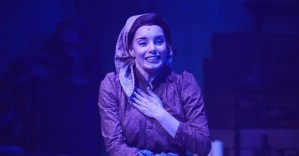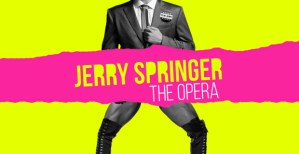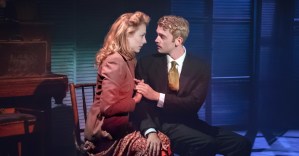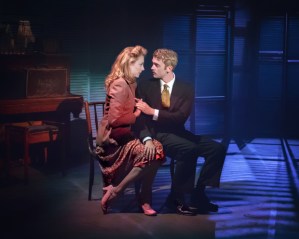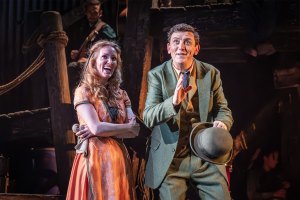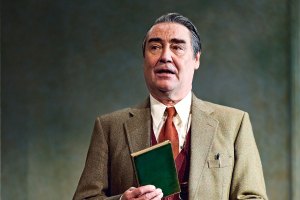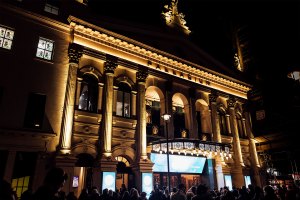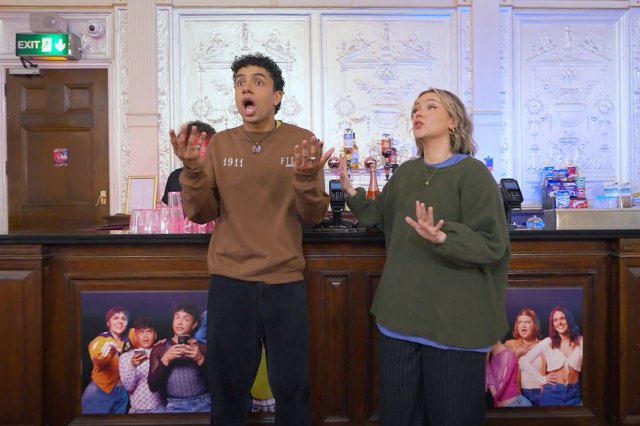Review: Rags (Hope Mill Theatre)
The Hope Mill Theatre stages this 1986 musical about the immigrant experience in New York in the early twentieth century
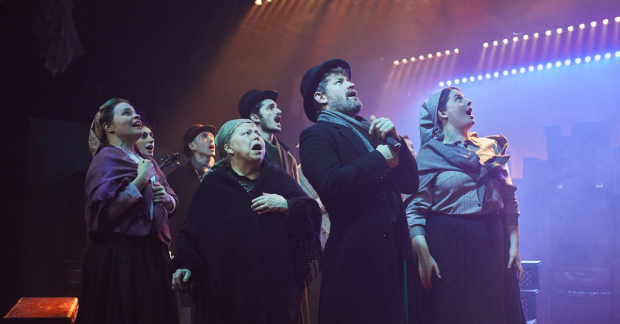
© Nathan Chandler
Having originally opened on Broadway in 1986, Rags is Stephen Schwartz, Joseph Stein, Charles Strouse and David Thompson's tale of a Russian Jewish woman named Rebecca and her young son David as they attempt to find their way in early twentieth century New York as first generation immigrants. Assisted by a kind Jewish family, Rebecca is eventually able to secure a steady life for herself and her child. Which doesn't mean that tragedy and hardship are overcome. Bronagh Lagan's production is unflinching in both its portrayal of the anti-Semitic attacks Jewish people were subjected to at the time, and also the poverty that was an unavoidable truth of the immigrant experience.
Gregor Donnelly's set design emphasises this economic uncertainty from the outset; sparse and dilapidated furniture litters the stage, whilst the family's apartment doubles as a mini sewing factory during sunlight hours. Furthermore, it seems exceptionally apt that the stage's limit is defined by stacks of suitcases. The use of luggage emphasises the migratory nature of the characters' existence; having moved to New York from Eastern Europe to seek a new life and brighter hopes, the bags remind the audience of the immense bravery that accompanies such a decision. More poignantly however, the suitcase also acts as a historical signifier of Jewish persecution – with piles of luggage stolen from those who were forced into concentration camps. The decision by Donnelly to channel this type of sentiment is a masterstroke.
The cast's performances are solid all round, but Rebecca Trehearn deserves special credit for her main role – what comes across best in the production is her intense love and affection for her younger son, played by George Varley. In addition, Robert Tripolino's performance as the young Italian unionist Sal is lively and energetic but his softer moments with Rebecca and her child demonstrate further sides to his acting abilities.
Klezmer musicians are another aspect of the Jewish experience that this production utilises well. Two violinists, a clarinet and an accordion player move around the stage complimenting the cast's singing. The street scenes in particular are all the more visceral for their live performances. As the newly-landed immigrants walk through a street market in act one, the music floats around the stage from all angles and strengthens the idea of a new and exciting city bursting at the seams with a myriad of sounds and action.
If the Klezmer musicians are a major plus for the production, it must be said that the remainder of the score is utterly bland by comparison. The quantity of songs in the musical means it becomes increasingly hard to distinguish one from the next, and the sheer number of vocal climaxes in these songs is ludicrous. The regularity of vocal crescendos ultimately rids them of any emphasis – by the close of the play, the final notes that are intended to sound triumphant and hopeful feel like one of the hundreds heard previously.
For a musical dealing in subject matter that is so relevant in an anti-immigration era, what is so surprising about this play is quite simply how dull it is. In an unspectacular story at around two and a half hours running time, there is simply not enough in either the script or the score to maintain interest. By the close, one rather hopes the story can be wound up sooner rather than later and it might just be possible to miss the worst of the Manchester City football traffic on the journey home.




